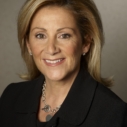By Kathryn Del Greco
Vice President, Investment Advice at TD
Wealth Private Investment Advice
The volatility of the markets over the past few weeks has been difficult for everyone to witness on top of the greater personal concerns people are having over COVID-19. The uncertainty around the coronavirus is something that certainly unites all of us, and while the full impact of the virus on global markets can’t be predicted, I am providing some advice and responses to the most common questions investors are asking wealth advisors right now. While this information is meant to be general during unpredictable times, we do stress that investors consult with their advisors for more specific information that is aligned with an individual’s long-term investment goals.
Q: What does the virus mean for global financial markets?
No question that the timing of this pandemic is serious given already heightened concerns about a global economic slowdown. Europe was already on the cusp of a recession when events began unfolding, and Japan's economy suffered before factoring in the potential impact of the virus. While there will continue to be some loss of activity, once the virus levels off, subsequent quarters could see economic rebounds like we saw after SARS and MERS as business operations and consumer activity normalizes. And while the full impact of the virus on financial markets is impossible to predict, investors do have options.
Q: Shall I stay invested?
Trying to protect yourself by attempting to predict the ups and downs of the market (and moving in and out of them) could mean missing out on long-term growth. The best days for investment growth often come after the worst. History has previously shown that after bear markets, Canadian equities recovered and resumed their upward trend. That’s why staying focused on long-term investment goals is important as those who sell during a bear market could miss out on returns during a recovery period. Investors wanting to build longer-term wealth should consider investing with a view beyond the immediate discomfort of current events affecting global markets.
Q: What is the difference between risk and uncertainty?
Where things like the U.S. election, trade disputes, a possible recession and geopolitics were ‘identifiable risks’ at the beginning of 2020, unpredictable events such as the virus are impossible to quantify and a good example of uncertainty. For situations that fall under the ‘uncertainty’ category (such as COVID-19), however, we believe in building portfolios that take advantage of our true diversification approach. This means combining asset allocation, factoring in diversification across asset classes, geographies, risk factors and macroeconomic environments, along with behavioural finance considerations.
While the market volatility over the past two weeks has been difficult, you should consider speaking with your advisor about whether a more diversified portfolio that seeks to be not overexposed to adverse events (and one that is prepared for the risks and uncertainties currently impacting global financial markets), is a desirable option at this time.
Q: What’s is your message for investors?
Do not lose sight of long-term goals and stay invested. Speak with your advisor at your earliest convenience to discuss options and concerns, or to learn more about how TD Wealth harnesses the field of behavioural finance through our discovery process, and how it could impact the decision-making of investors during unpredictable times. This message goes beyond what’s currently happening with COVID-19 and applies anytime an investor faces a change in their finances or a major life event.

